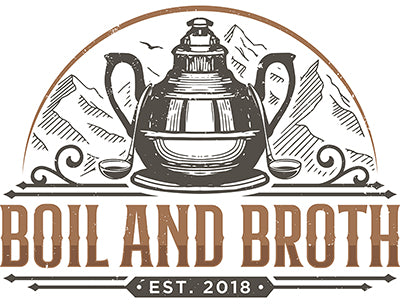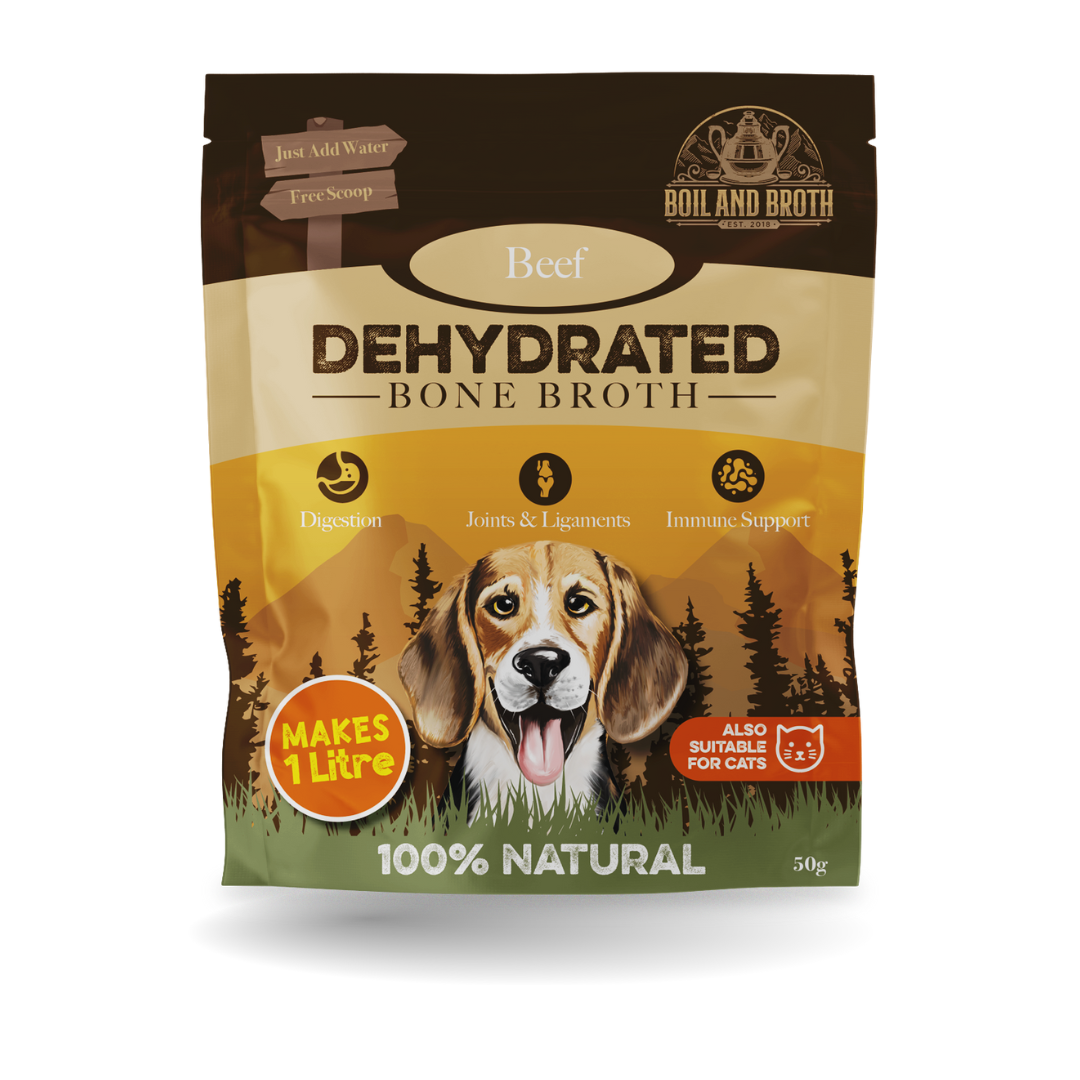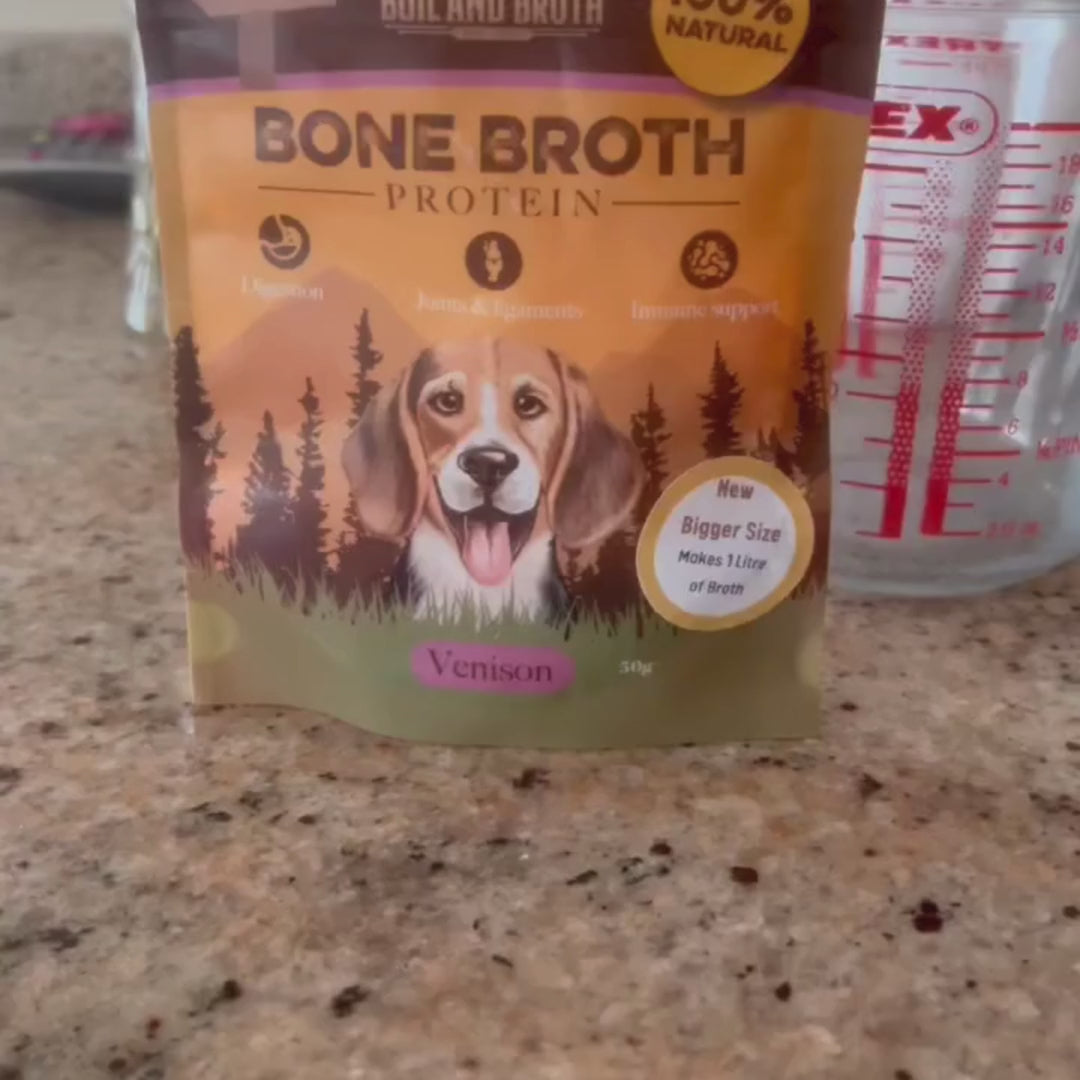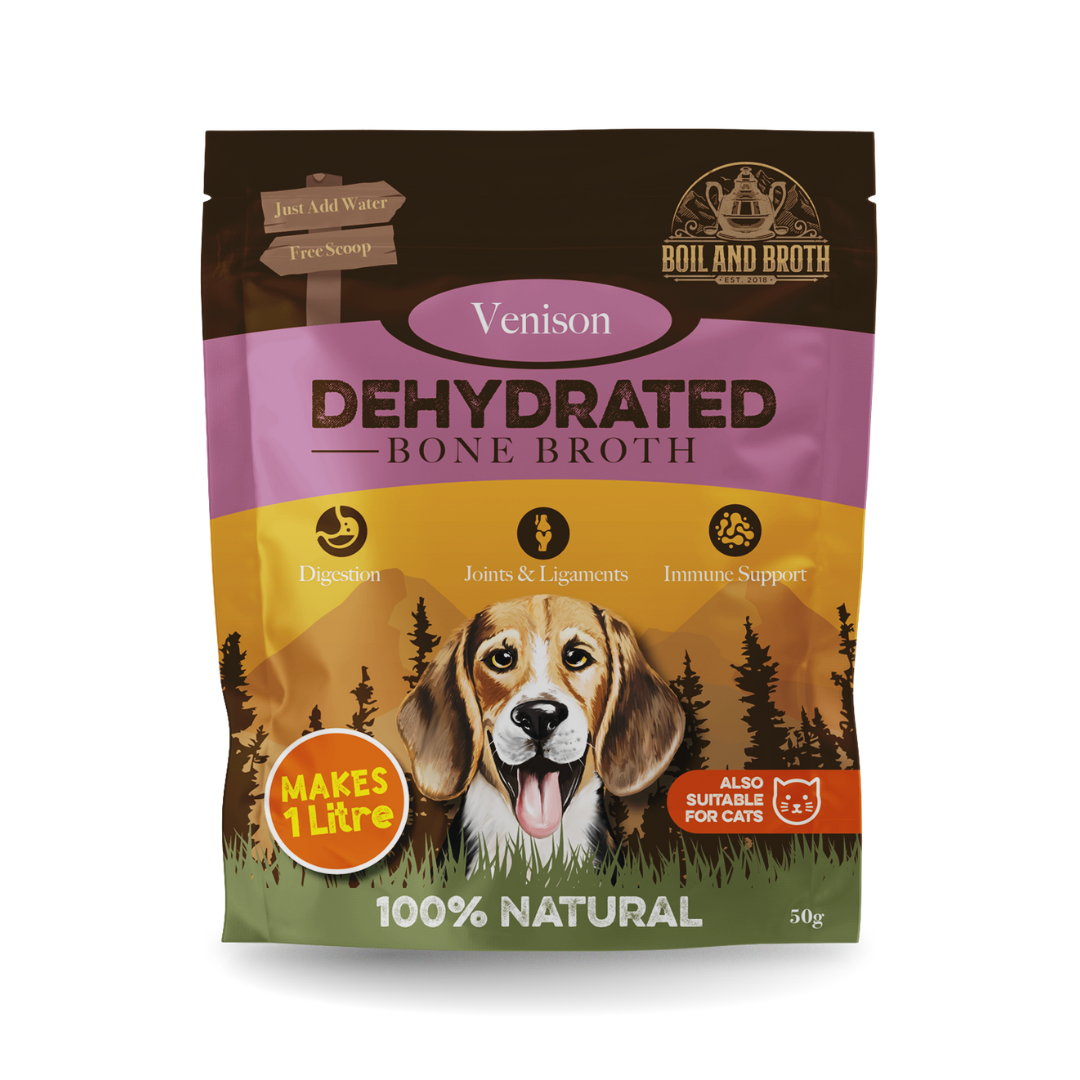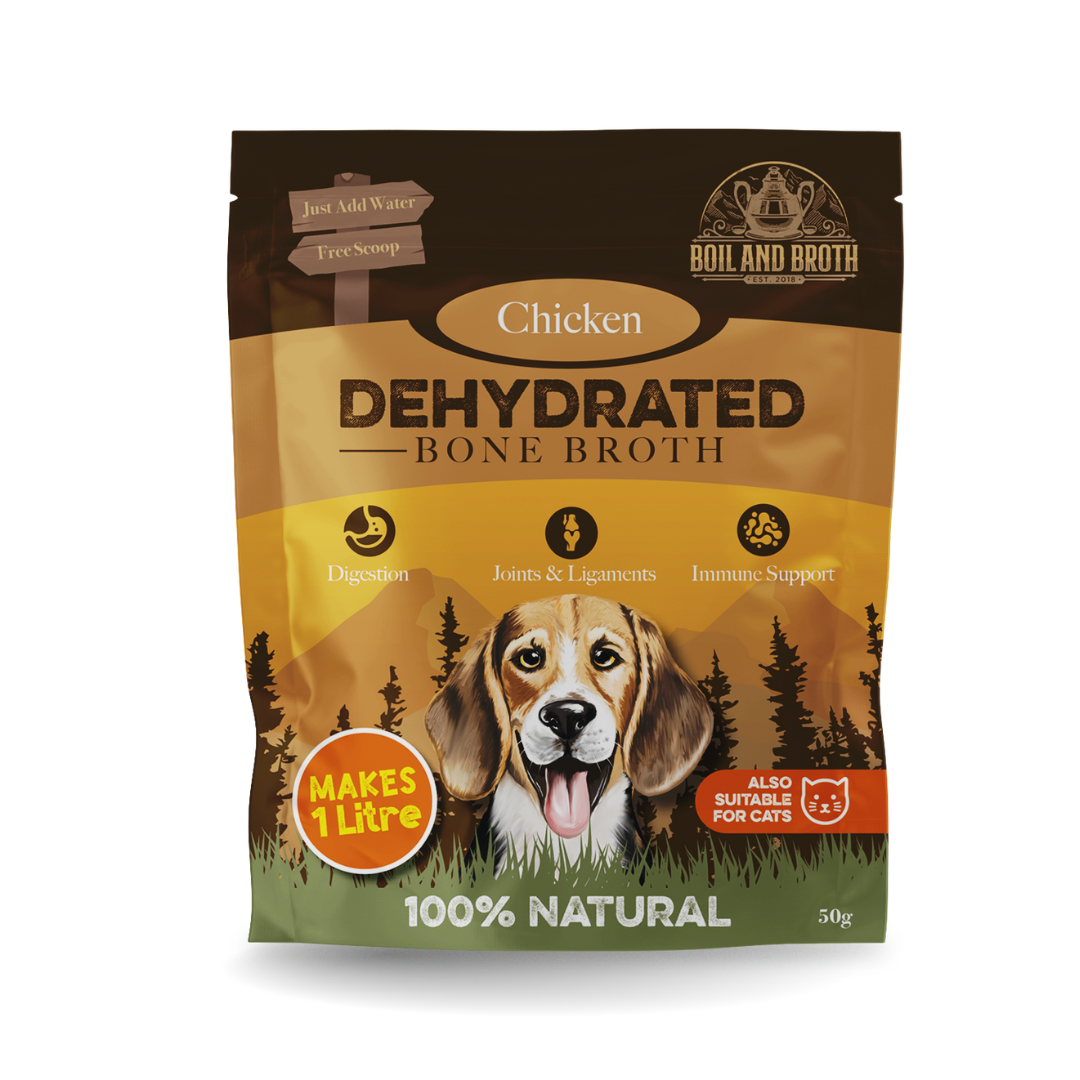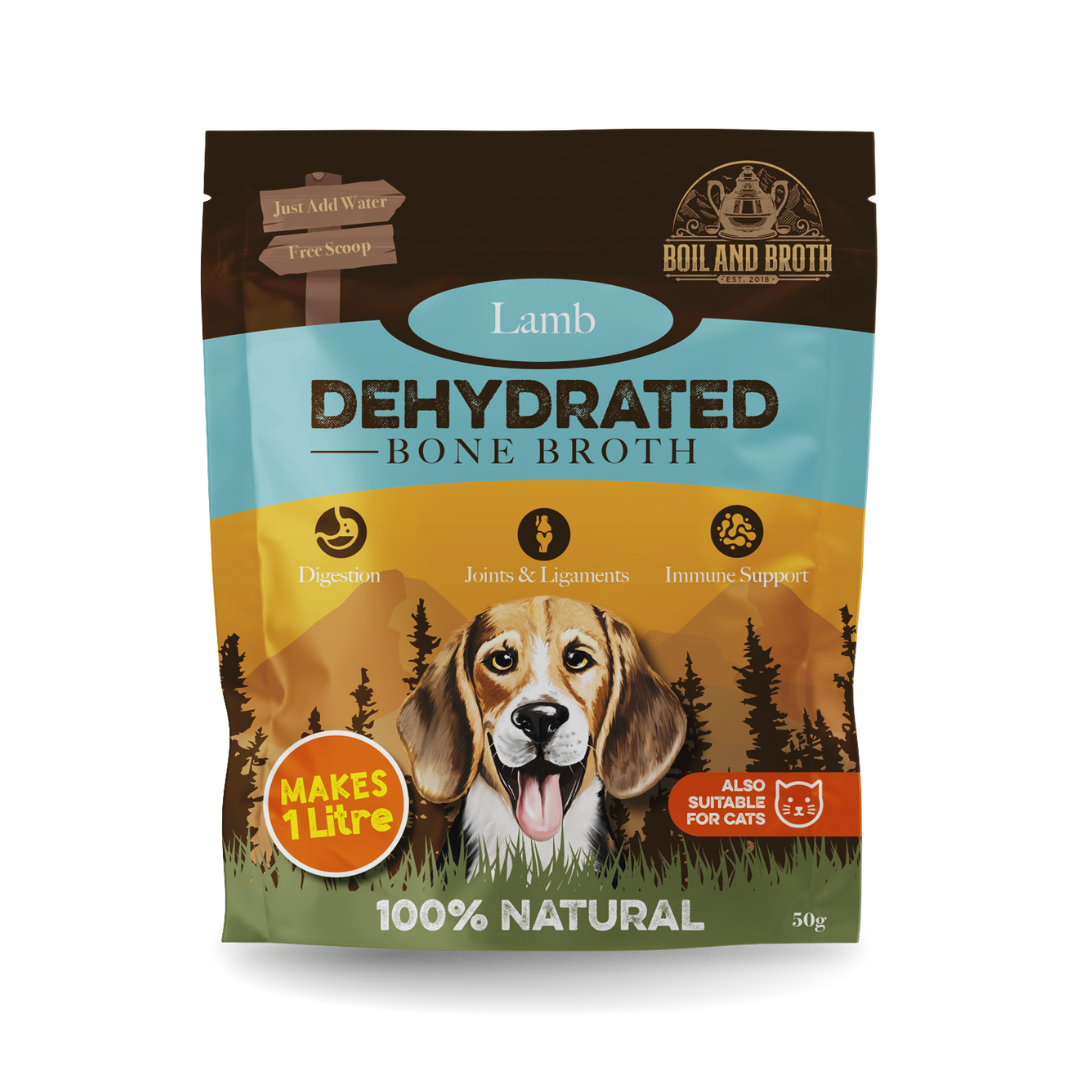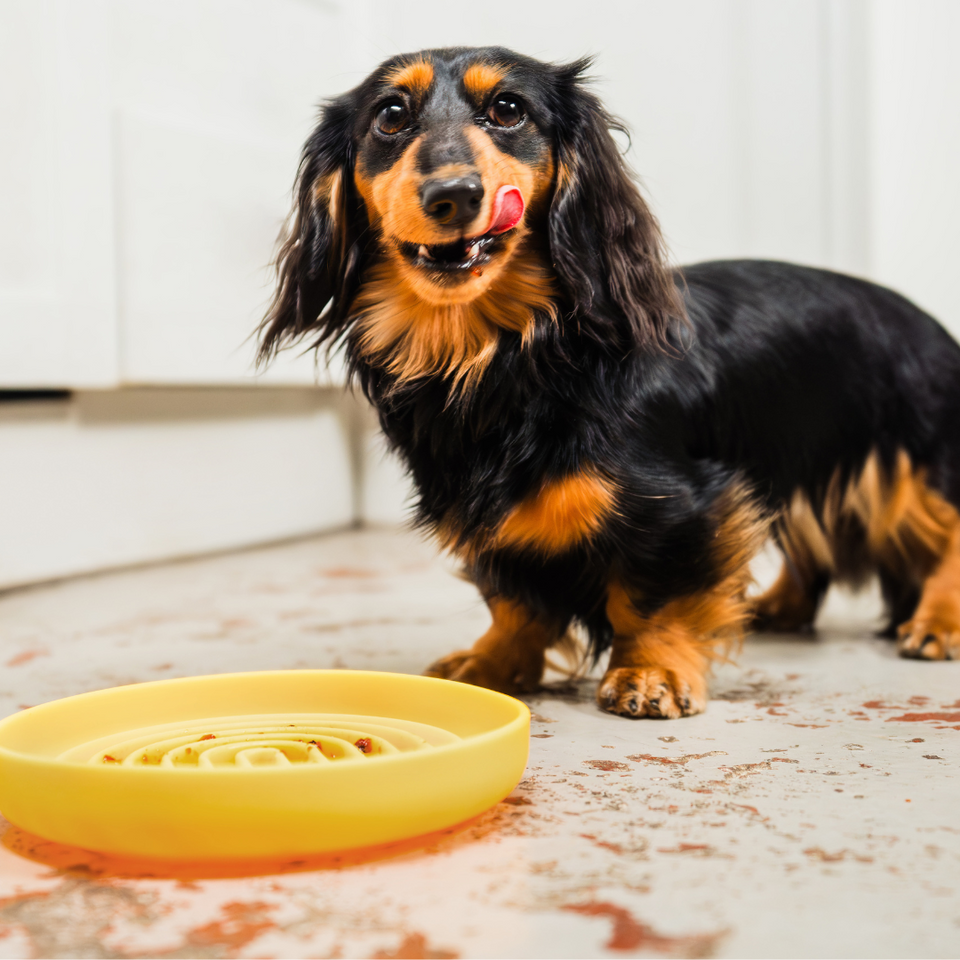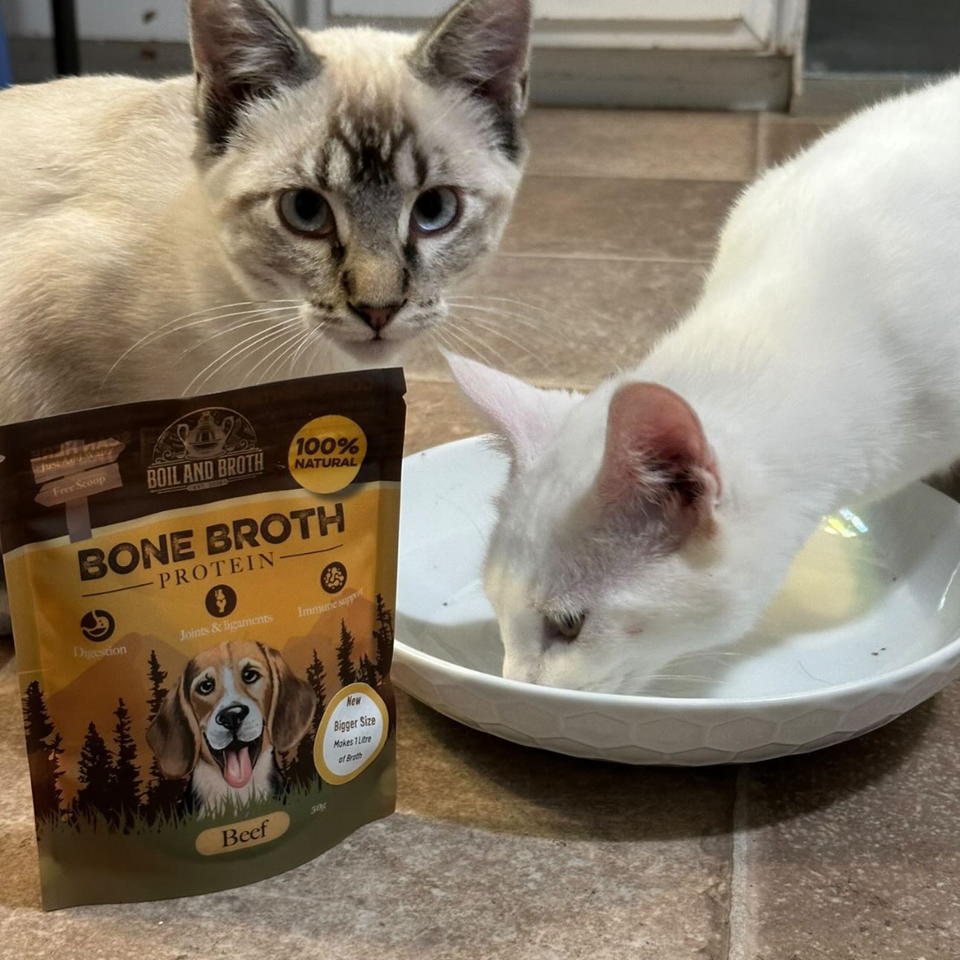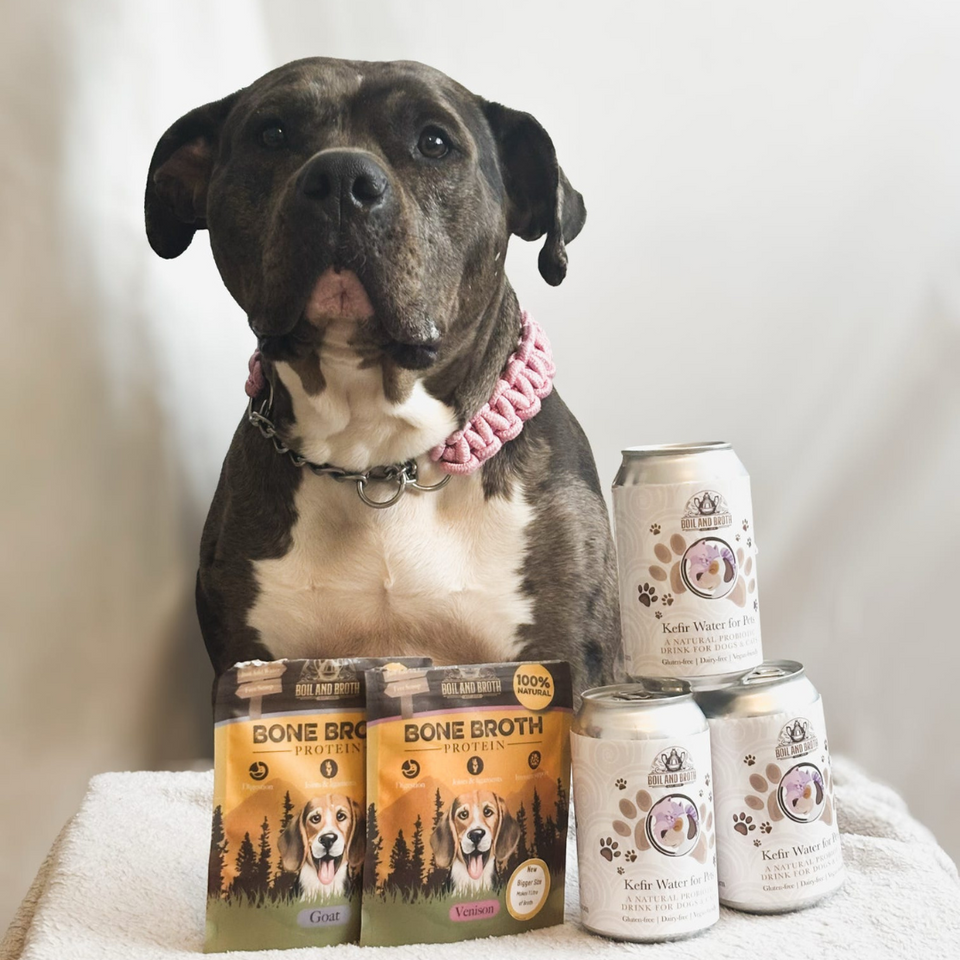
Can bone broth help if my dog has food poisoning?
Can bone broth help if my dog has food poisoning is something every dog owner should consider, especially this Christmas. Did you know that there is an increase of 75% vet visits at Christmas, with 86% of those being related to food poisoning.
As dog owners, we always want the best for our furry companions, especially when it comes to their health. The holiday season, with its festive feasts and tempting treats, brings joy and celebration. However, it also poses a potential risk for our dogs, who might succumb to food poisoning due to well-intentioned but harmful sharing of human food. One excellent and natural way to support our canine friends, particularly during bouts of food poisoning, is by introducing bone broth into their diet.
Understanding the Benefits of Bone Broth for Dogs:
Bone broth has been a staple in human diets for centuries, renowned for its numerous health benefits. This nutrient-dense elixir is made by simmering animal bones, often with added vegetables and herbs, to extract valuable minerals, amino acids, and collagen. The same principles apply when considering the advantages of bone broth for dogs.
Gentle on the Digestive System:
During food poisoning, a dog’s digestive system can become irritated and inflamed. Bone broth, being easy to digest, provides a soothing and nourishing option. It helps alleviate digestive discomfort, allowing the gut to heal without further irritation.
Rich in Nutrients:
Bone broth is a nutritional powerhouse, containing essential vitamins and minerals such as calcium, phosphorus, and magnesium. These nutrients contribute to overall health, promoting strong bones, teeth, and a well-functioning immune system.
Collagen for Joint Health:
The collagen present in bone broth is beneficial for joint health in dogs. As our canine companions age, they may experience joint issues or arthritis. Regular consumption of bone broth can aid in maintaining joint flexibility and reducing inflammation.
Hydration Support:
Dogs with food poisoning often experience dehydration due to vomiting and diarrhea. Bone broth is an excellent way to encourage hydration, as it provides both fluids and essential electrolytes, helping to prevent dehydration during episodes of illness.

How Bone Broth Helps During Food Poisoning:
When a dog experiences food poisoning, it’s crucial to provide a gentle and easily digestible source of nutrition to support their recovery. Bone broth fits the bill perfectly, offering a range of benefits during these challenging times.
Rehydration:
The electrolytes in bone broth, such as potassium and sodium, help replenish lost fluids and electrolytes during bouts of vomiting and diarrhoea. This aids in preventing dehydration, a common concern in dogs suffering from food poisoning.
Soothing the Digestive Tract:
The gelatin in bone broth coats and soothes the digestive tract, reducing inflammation and irritation. This can be particularly helpful for dogs experiencing upset stomachs, vomiting, or diarrhoea.
Boosting Appetite:
Dogs with food poisoning may lose their appetite, making it challenging to provide essential nutrients for recovery. The rich aroma and flavour of bone broth can entice even the pickiest eaters, encouraging them to consume the necessary nutrients for a quicker recovery.
Supporting the Immune System:
The amino acids, minerals, and other nutrients in bone broth contribute to a strong immune system. This is crucial during times of illness, as a robust immune response aids in combating the source of food poisoning and promoting overall well-being.
How to Introduce Bone Broth to Your Dog’s Diet:
Introducing bone broth to your dog’s diet is a simple and enjoyable process. You can either make it at home or purchase high-quality, dog-friendly bone broth from reputable sources. When incorporating bone broth into your dog’s routine:
Start Slowly:
Introduce bone broth gradually, especially if your dog is not accustomed to it. Begin with small amounts and observe how your dog responds.
Use as a Topper:
Pour a small amount of bone broth over your dog’s regular food. This not only enhances the flavour but also adds valuable nutrients to their meals.
Serve as a Treat:
Bone broth can be served as a standalone treat. Freeze it into ice cube trays or molds for a refreshing and soothing summer treat, or serve it warmed during colder months.
Monitor for Allergies:
While bone broth is generally well-tolerated, it’s essential to monitor your dog for any signs of allergies or sensitivities. If you have concerns, consult your veterinarian before making bone broth a regular part of your dog’s diet.
In conclusion, bone broth is a powerful and natural way to support your dog’s health, especially during instances of food poisoning. Its nourishing properties, combined with its ease of digestion, make it an excellent addition to your dog’s diet year-round. As you celebrate the holidays with your furry friend, consider incorporating this wholesome elixir to provide them with the love and care they deserve, promoting a swift and comfortable recovery from any food-related mishaps. Remember, a healthy dog is a happy dog, and bone broth can be a delicious and beneficial ally in maintaining your canine companion’s well-being.
